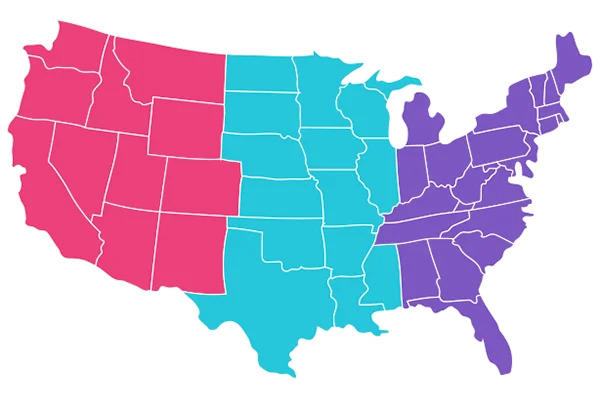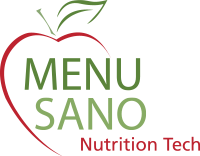Ensuring the safety of manufactured food products in the United States is a matter of national importance. The Manufactured Food Regulatory Program Standards (MFRPS), developed by the U.S. Food and Drug Administration (FDA), serve as the benchmark for excellence in food safety and regulatory compliance among state programs. This comprehensive guide explores the intricacies of the FDA MFRPS, how they shape regulatory practices, and why compliance is vital for public health protection and business integrity.
Key Takeaways
- FDA MFRPS sets national standards to align state and federal food safety efforts.
- The program includes 10 core standards covering management, training, labs, and outreach.
- While voluntary, compliance shows regulatory excellence and readiness.
- Audits and improvement plans are essential for continued conformance.
- Compliant agencies gain federal support and handle food safety threats more effectively.
- MFRPS ensures consistency, reducing confusion and improving compliance.
- It strengthens the U.S. food safety system through unified, proactive oversight.
What is FDA MFRPS?
The FDA MFRPS (Manufactured Food Regulatory Program Standards) is a set of voluntary yet highly recommended regulatory standards designed to enhance the capacity and consistency of food safety programs administered by state and territorial regulatory agencies. These standards aim to unify food safety practices across jurisdictions to ensure a robust national integrated food safety system.
State programs that meet the FDA MFRPS standards are better equipped to prevent, detect, respond to, and recover from foodborne illness outbreaks and other food safety hazards.
Purpose and Scope of MFRPS FDA Standards
The MFRPS FDA framework establishes ten comprehensive standards that define the critical components required for a high-functioning manufactured food regulatory program. These standards encompass:
- Program Management
- Laws and Regulations
- Training Program
- Inspection Program
- Audit Program
- Foodborne Illness and Outbreak Investigation
- Compliance and Enforcement
- Industry and Community Relations
- Program Resources
- Laboratory Support
Each standard contributes to a harmonized approach for food safety enforcement, inspection, and public protection.
Detailed Breakdown of the 10 FDA MFRPS Standards

1. Program Management
A successful food safety program requires strong leadership and organized management systems. The first standard mandates that regulatory programs develop and maintain written policies and procedures, program assessments, and documentation to measure performance over time.
2. Laws and Regulations
The second standard ensures that each program operates under legal authority equivalent to or stronger than the FDA’s federal regulations. These laws must cover essential regulatory actions such as sampling, embargo, recall, and inspection protocols.
3. Training Program
For consistent enforcement, regulatory staff must undergo standardized, competency-based training. The FDA MFRPS includes guidelines for developing and implementing training systems aligned with the Integrated Food Safety System (IFSS) curriculum framework.
4. Inspection Program
This standard defines how inspections should be conducted, documented, and reviewed. Programs must ensure that inspections are risk-based, timely, and thorough, with clear documentation in a centralized system for analysis and audit.
To support this standard, MenuSano has partnered with Field Eagle, an advanced inspection software platform, to streamline and digitize food inspection processes. This collaboration allows inspectors to conduct mobile, on-site inspections with real-time data capture, customizable checklists, and automatic reporting. By integrating MenuSano’s nutrition analysis capabilities with Field Eagle’s powerful inspection tools, regulatory agencies and food businesses can ensure greater accuracy, compliance, and efficiency in their food safety inspections.
5. Audit Program
Internal self-assessments and external verification audits are required to evaluate the effectiveness and quality of inspections and regulatory actions. Programs must conduct periodic audits using FDA-defined performance measures and quality assurance protocols.
6. Foodborne Illness and Outbreak Investigation
Rapid response to foodborne illness reports is crucial. This standard outlines the criteria and protocols for investigating food-related illness outbreaks, from notification and coordination to traceability and public communication.
7. Compliance and Enforcement
The FDA MFRPS standards require programs to establish clear enforcement strategies based on risk analysis, compliance history, and industry cooperation. Actions may range from warning letters to license revocation or criminal prosecution.
8. Industry and Community Relations
Maintaining open communication with food businesses, consumers, and stakeholders is essential. This standard emphasizes the importance of public outreach, industry education, and transparency to build trust and ensure shared responsibility in food safety.
9. Program Resources
Adequate staffing, funding, and technological tools are necessary for optimal program performance. Regulatory programs must document and justify resource needs and align them with performance goals and strategic plans.
10. Laboratory Support
Access to accredited laboratory services is vital to confirm compliance and investigate violations. The final standard ensures that labs used by regulatory programs meet ISO/IEC 17025 or equivalent accreditation and participate in proficiency testing.
Benefits of Complying with FDA MFRPS
Achieving conformance with the FDA MFRPS standards offers numerous advantages for state agencies and the communities they serve:
- Improved Public Health Outcomes: Foodborne illness rates can be significantly reduced with unified inspection protocols and faster outbreak responses.
- Enhanced Program Credibility: Meeting MFRPS FDA standards demonstrates a commitment to national regulatory excellence.
- Increased Funding Opportunities: The FDA often prioritizes funding for programs actively participating in the MFRPS framework.
- Seamless Integration into National Systems: Programs that align with MFRPS are better positioned to collaborate with federal counterparts like the FDA, CDC, and USDA.
- Operational Efficiency: Standardized procedures and documentation minimize redundancies and allow for targeted resource allocation.
The MFRPS Continuous Improvement Process
Participation in the FDA MFRPS is not a one-time achievement—it’s a dynamic, continuous improvement process. Programs must submit Self-Assessment and Strategic Improvement Plans to the FDA, demonstrating progress, identifying challenges, and outlining strategies for sustained compliance.
The FDA provides technical support, performance tracking tools, and peer review mechanisms to help regulatory agencies maintain momentum and align with evolving food safety trends and science.
MFRPS and the Future of Food Safety
The FDA MFRPS standards play a central role in developing the Integrated Food Safety System (IFSS), an initiative to synchronize local, state, and federal efforts in food safety.
As new food technologies and global supply chains introduce emerging risks, the FDA MFRPS provides a resilient framework that enables agencies to adapt, innovate, and confidently protect consumers.
Food manufacturers and processors also benefit indirectly, as aligned inspections, clearer expectations, and consistent enforcement reduce confusion and promote compliance.
So Why FDA MFRPS Matter Now More Than Ever?
In today’s complex food production landscape, FDA MFRPS compliance isn’t just a regulatory checkbox—it’s a strategic investment in public health, operational effectiveness, and interagency collaboration. Regulatory agencies can ensure safer products, greater transparency, and a stronger national food system by upholding the highest standards in food safety programs.
The FDA MFRPS represent a framework and a commitment to excellence that continues to evolve alongside the food industry. Staying informed and engaged with these standards is essential for any regulatory professional or food business looking to thrive in today’s dynamic environment.



















